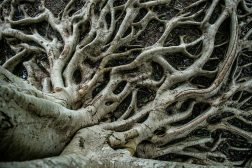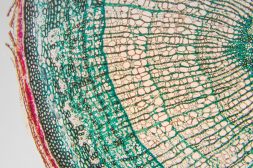Definition
noun, plural: meristems
(”botany’) An undifferentiated plant tissue that can give rise to different tissues and organs as the plant grows
Supplement
A meristem is comprised of indeterminate, actively dividing cells that give rise to differentiated tissues such as epidermis, trichomes, phellem, and vascular tissues. The meristem (also called meristematic tissue) is responsible for the growth of plants.
There are many ways to classify meristematic tissues. Based on the type of growth they are associated with, they may be primary or secondary. Another way of classifying them is according to their location in the plant: (1) apical meristem (terminal portions), (2) intercalary meristem (at the nodes of certain monocots), and (3) lateral meristem (toward or from the sides).
The cells of meristematic tissue are usually small and thin-walled (with primary cell wall only). They are compact, leaving no intercellular spaces in between. They are a parenchymatous-type of cell. They have a large nucleus and extremely small vacuoles (when present). The type of plastid present is a proplastid. The genes responsible for keeping the cells at an undifferentiated state belong to a family of genes controlling plant morphologenesis, the knotted1-like homeobox (KNOX) genes.
Also called:
- meristematic tissue
- embryonic tissue
- growth tissue
See also:
Related term(s):
Related form(s):




